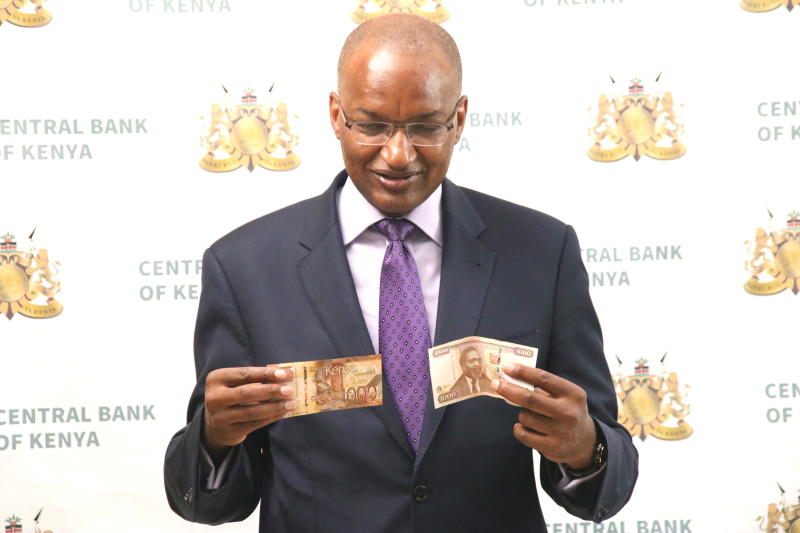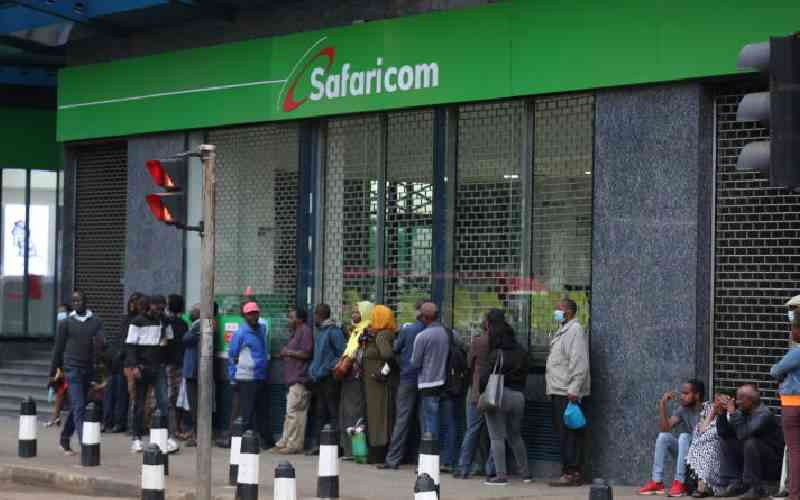×
The Standard e-Paper
Fearless, Trusted News

Central Bank of Kenya Governor Patrick Njoroge holds the new 1000 shilling note with the old note during the media briefing on the new currencies notes [David Gichuru, Standard]
“Thanks to your hard work and commitment, our shilling has remained fairly stable and competitive.”







